Is Panama Safe to Visit? Travel Safety Tips You Must Know
Panama is one of the safest countries in Central America and an important trade zone due to its namesake canal. Here’s what to know about crime, scams, and natural hazards when traveling here.
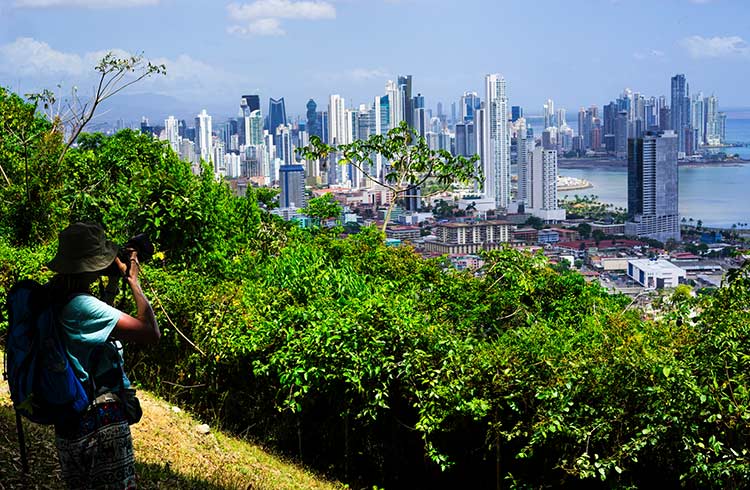 Photo © iStock/DavorLovincic
Photo © iStock/DavorLovincic
Panama is an incredibly beautiful country that's well worth exploring. It’s not without dangers, however. If you keep your wits about you and avoid well-known danger zones, you can lessen the chances of falling victim to crime.
- Crime in Panama
- Crime hot spots
- Alcohol and drug laws in Panama
- Safety in the Darien Gap
- Narco boats and coastal crime in Panama
- Safety for female travelers
- Taxis and public transport in Panama City
- Car rental and purchase scams
- General safety tips for travelers
Crime in Panama
Crime in Panama is moderate. According to Numbeo, as of 2025 the crime index in Panama is 42.7, considerably lower than the rest of Central America, including Costa Rica. The most common crimes are robbery, purse snatching, pickpocketing, and theft from automobiles. Violent crime is not frequent, and tourists are rarely the target, but it does occur.
Crime hot spots in Panama
There are some really beautiful beaches and towns to visit in Panama. However, there are also some areas to avoid. These include:
Colón, Panama
Colón is known for its high crime rate both day and night, and some government agencies have issued warnings about travel to the coastal city.
Bastimentos Island, Bocas del Toro
Bastimentos is the largest island in the Archipelago of Bocas del Toro, one of Panama’s top tourism destinations. There have been reports of muggings and violent attacks of tourists after dark. It's better to stay on the main island (Isla Colon), which has a police station or nearby Isla Carenero which is smaller with a tight-knit community of locals.
Panama City
In Panama City, visitors should exercise extra caution after dark in certain neighbourhoods such as Calidonia, El Chorrillo and San Miguelito, where higher‑than‑average crime rates have been recorded. While most incidents involve opportunistic muggings or theft rather than targeted violence, reports of robberies and assaults in poorly‑lit or less‑patrolled zones do occur. For your safety, avoid walking alone at night, steer clear of the busy bus stations and shopping districts like Avenida Centra.
Tips to aviod theft
- Keep your possessions close – smart phones are a particular target.
- Keep your bags shut and try to carry them on your front at all times.
- Mobile phones and wallets should never go in your back pocket.
- Only use ATMs in banks or shopping centers.
Alcohol and drug laws in Panama
Panama is on the route from the cocaine-growing areas of South America to the largest consumer country, the USA. Trafficking is a serious business and as such poses a real threat to unwitting travelers.
It is a serious crime to be in possession of even very small quantities of drugs – including marijuana. Simply being in the company of someone using drugs is sufficient grounds for arrest. Prison terms for drug offences can be up to 15 years, and it can take up to two years to even appear before a judge for sentencing.
Due to the prevalence of drugs in the isthmus, police checkpoints are commonplace on weekends on roads between cities. Use your common sense and stop when requested. You might see or hear of locals doing it, but don’t attempt to bribe police officers.
The drinking age in Panama is 18. Public consumption of alcohol is common in certain places such as beaches, but it’s prohibited in some parts of Panama City, including family-friendly Parque Omar. Do take this seriously because if you are seen you can be arrested and jailed.
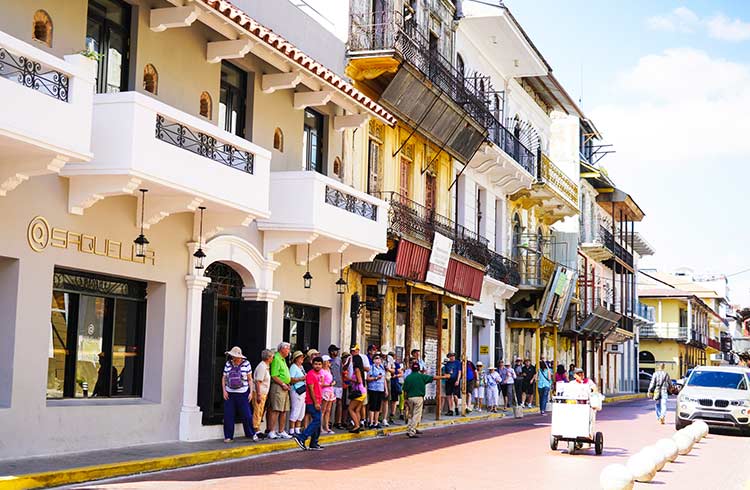
Safety in the Darién Gap
The Darién Gap is a perilous, narrow swathe of land that engineers omitted when building the Pan American highway from Argentina to Alaska in the 1930s. This was due to its inaccessibility, rough rivers, challenging vegetation, and deadly creatures. Today, it’s dangerous for other reasons.
Drug traffickers frequent this lawless area on Panama’s border with Colombia. There have been numerous reports of kidnappings and murders, armed robberies, mysterious deaths, and disappearances.
Authorities are also on high alert for human traffickers and illegal immigrants crossing this land border so you might be in for a scuffle if you encounter police there. Even agents from Panama’s National Border Service (Senafront) have been shot at by drug and people smugglers. Migrants have been sexually assaulted and extorted, too.
The dangerous zone begins at the end of the Pan American Highway (at Yaviza, about 230km southeast of Panama City) and ends at the Colombian border. This area includes the Darién National Park, privately owned nature reserves, and tourist resorts. The US State Department has issued "do not travel" warnings for some parts of the region.
Natural threats in the Darién jungle include impassable swamps, disease-carrying insects, and venomous spiders and snakes. If you visit, do so with a local guide during the dry season. The Darién is one of the least visited places in the world for a reason.
Planning a trip to Panama? Find out how travel insurance can cover medical emergencies, lost or stolen baggage, or other travel mishaps.
Narco boats and coastal crime in Panama
Drug trafficking is not isolated to land. Plying the waters of both the Pacific and Atlantic coasts (and the famous San Blas Archipelago) are go-fast boats and drug-submarines transporting illicit materials between Panama and other Latin American countries.
If you travel between Colombia and Panama by sea, it isn't unheard of that the crew may take drugs with them, too. Remember, you may pay the price for even being in the company of someone in possession of drugs.
When traveling by boat or along the coastline, if you see any bales or wrapped packages floating in the sea or lying on remote beaches, avoid them at all costs. These are likely to be drugs ready for pick-up so do not touch them.
Safety for female travelers
Wolf whistles and catcalls are prevalent around Panama. Even taxi drivers will honk at women on the street – to signal both their availability and admiration.
Despite this, Panama is generally safe for female travelers, but it’s important to stay vigilant. Stick to well-traveled areas, especially at night. Always use a rideshare app at night rather than a yellow cab and share your live location with a friend.
Taxis and public transport in Panama City
Taxis in Panama City move at Formula One speed and drivers are known to remove seat belts from the back seats or hide them under fabric. It is also customary for yellow cabs to pick up multiple passengers going along the same route.
To minimize the risk of being taken somewhere you don’t know, don’t get into a cab that already has passengers or request that the driver doesn’t pick up any additional people while you’re in the car.
Taxis in Panama City aren’t metered so confirm your fare before you get in to avoid any disagreements.
Car rental and purchase scams
There has been an increase in scams, robberies, or fraud when trading low-cost cars online. Take extra precautions when meeting people from social media or Facebook groups to buy or sell any items. Always meet in safe, public locations and consider using established agencies for transactions.
General safety tips for travelers
- Blend in with the locals -- try not to stand out like a lost tourist.
- Avoid flaunting valuables.
- Respect local laws.
- Keep updated with travel advisories from your government.
- Know the location of your embassy or consulate.
- Learn some basic Spanish before you go so you can communicate with locals.
- You are required to have a form of photo ID on you at all times. Make sure you have one on your person or at least a copy of your passport and the page with your entry stamp.
Emergency contact numbers
For fire and rescue services or medical emergencies, call 911.
For police, call 104.
The Casco Antiguo Spanish School in Panama City old town has an express Spanish for Travelers program to learn the basics during a half-day class.
Related articles
Simple and flexible travel insurance
You can buy at home or while traveling, and claim online from anywhere in the world. With 150+ adventure activities covered and 24/7 emergency assistance.
Get a quote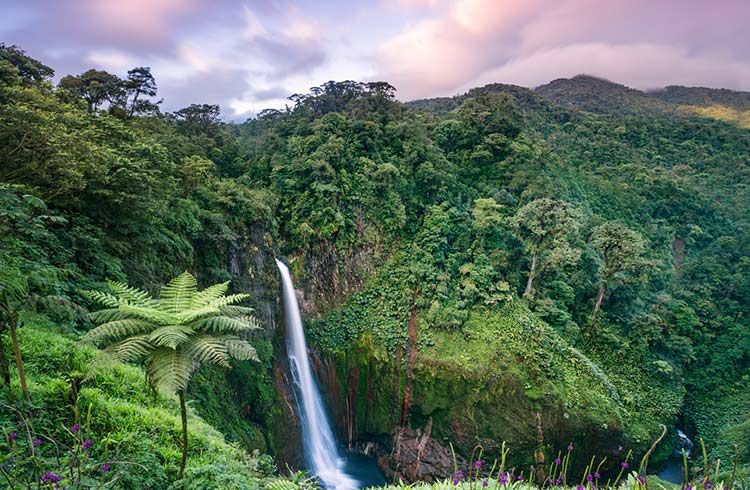
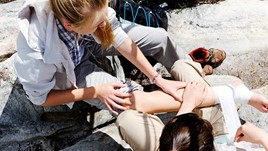
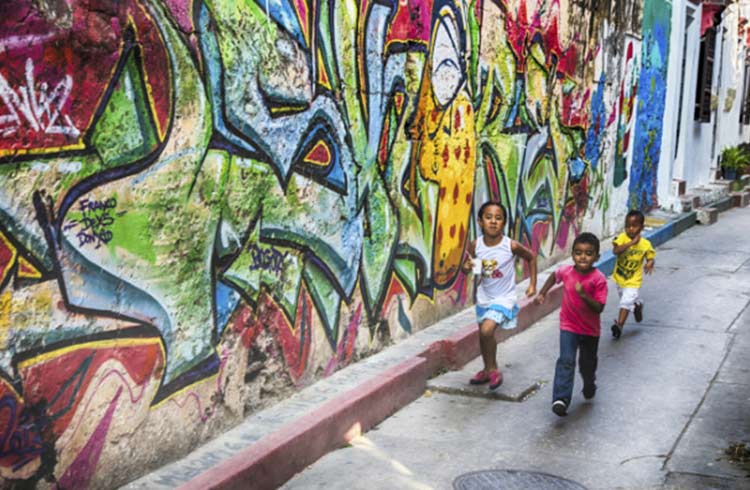
No Comments